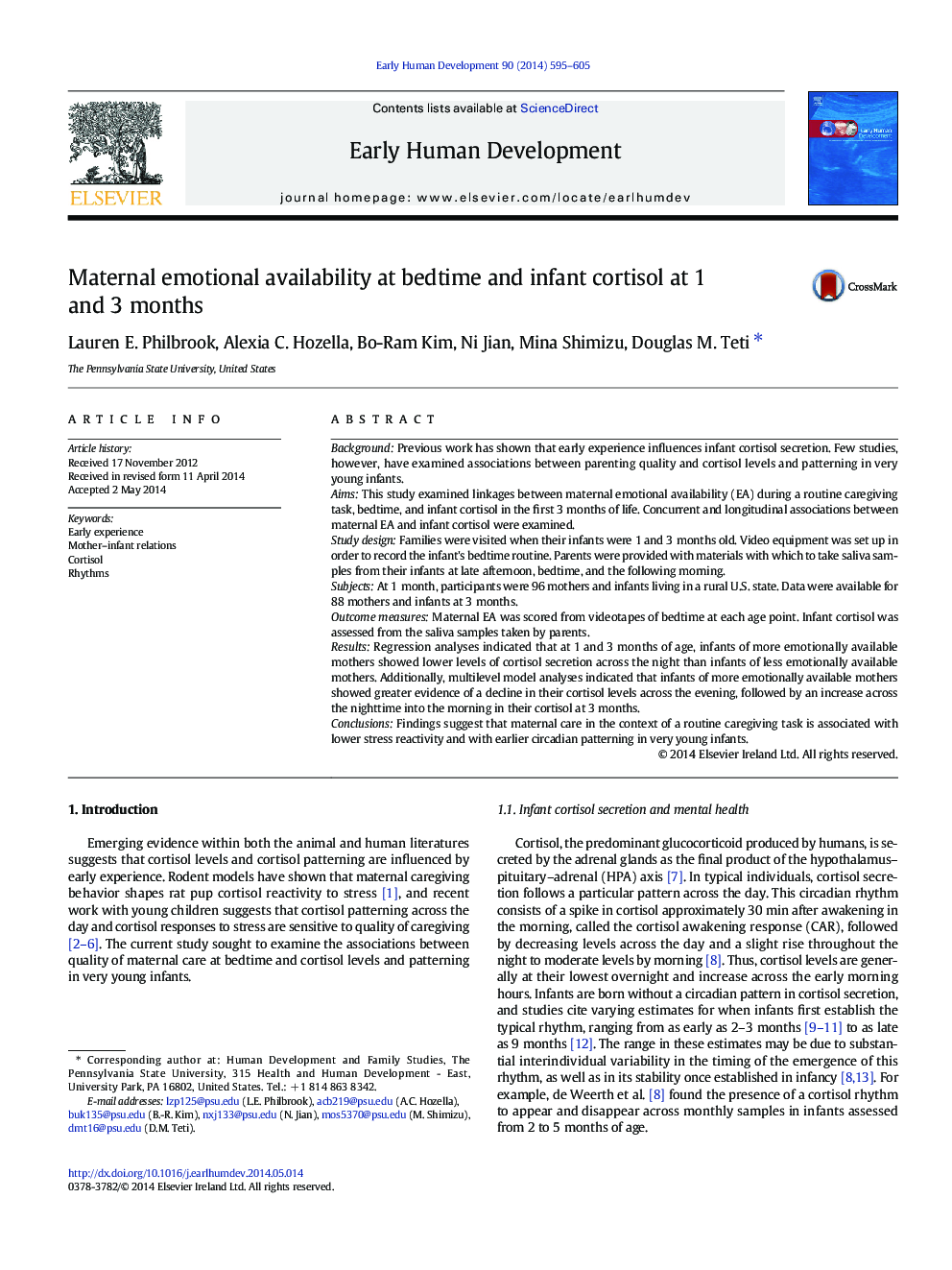| Article ID | Journal | Published Year | Pages | File Type |
|---|---|---|---|---|
| 3916636 | Early Human Development | 2014 | 11 Pages |
BackgroundPrevious work has shown that early experience influences infant cortisol secretion. Few studies, however, have examined associations between parenting quality and cortisol levels and patterning in very young infants.AimsThis study examined linkages between maternal emotional availability (EA) during a routine caregiving task, bedtime, and infant cortisol in the first 3 months of life. Concurrent and longitudinal associations between maternal EA and infant cortisol were examined.Study designFamilies were visited when their infants were 1 and 3 months old. Video equipment was set up in order to record the infant's bedtime routine. Parents were provided with materials with which to take saliva samples from their infants at late afternoon, bedtime, and the following morning.SubjectsAt 1 month, participants were 96 mothers and infants living in a rural U.S. state. Data were available for 88 mothers and infants at 3 months.Outcome measuresMaternal EA was scored from videotapes of bedtime at each age point. Infant cortisol was assessed from the saliva samples taken by parents.ResultsRegression analyses indicated that at 1 and 3 months of age, infants of more emotionally available mothers showed lower levels of cortisol secretion across the night than infants of less emotionally available mothers. Additionally, multilevel model analyses indicated that infants of more emotionally available mothers showed greater evidence of a decline in their cortisol levels across the evening, followed by an increase across the nighttime into the morning in their cortisol at 3 months.ConclusionsFindings suggest that maternal care in the context of a routine caregiving task is associated with lower stress reactivity and with earlier circadian patterning in very young infants.
